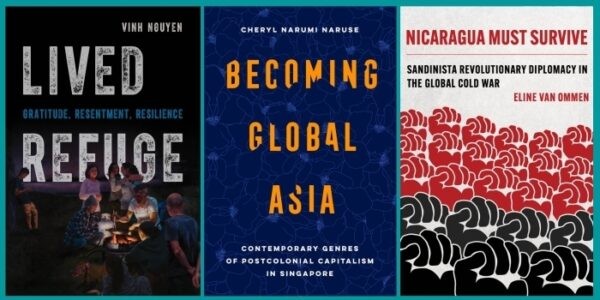About the Book
A free ebook version of this title is available through Luminos, University of California Press's Open Access publishing program. Visit www.luminosoa.org to learn more.
Becoming Global Asia centers Singapore as a crucial site for comprehending the uneven effects of colonialism and capitalism. In the wake of the 1997 Asian financial crisis, Singapore initiated socioeconomic policies and branding campaigns to transform its reputation from a culturally sterile and punitive nation to "Global Asia"—an alluring location ideal for economic flourishing. Rather than evaluating the efficacy of state policy, Cheryl Narumi Naruse analyzes how Singapore gained cultural capital and soft power from its anglophonic legibility. By examining genres such as literary anthologies, demographic compilations, coming-of-career narratives, and princess fantasies, Naruse reveals how, as Global Asia, Singapore has emerged as simultaneously a site of imperial desire, a celebrated postcolonial model nation, and an alibi for the continued subjugation of the so-called Third World. Her readings of Global Asia as a formation of postcolonial capitalism offer new conceptual paradigms for understanding postcolonialism, neoliberalism, and empire.
Becoming Global Asia centers Singapore as a crucial site for comprehending the uneven effects of colonialism and capitalism. In the wake of the 1997 Asian financial crisis, Singapore initiated socioeconomic policies and branding campaigns to transform its reputation from a culturally sterile and punitive nation to "Global Asia"—an alluring location ideal for economic flourishing. Rather than evaluating the efficacy of state policy, Cheryl Narumi Naruse analyzes how Singapore gained cultural capital and soft power from its anglophonic legibility. By examining genres such as literary anthologies, demographic compilations, coming-of-career narratives, and princess fantasies, Naruse reveals how, as Global Asia, Singapore has emerged as simultaneously a site of imperial desire, a celebrated postcolonial model nation, and an alibi for the continued subjugation of the so-called Third World. Her readings of Global Asia as a formation of postcolonial capitalism offer new conceptual paradigms for understanding postcolonialism, neoliberalism, and empire.


